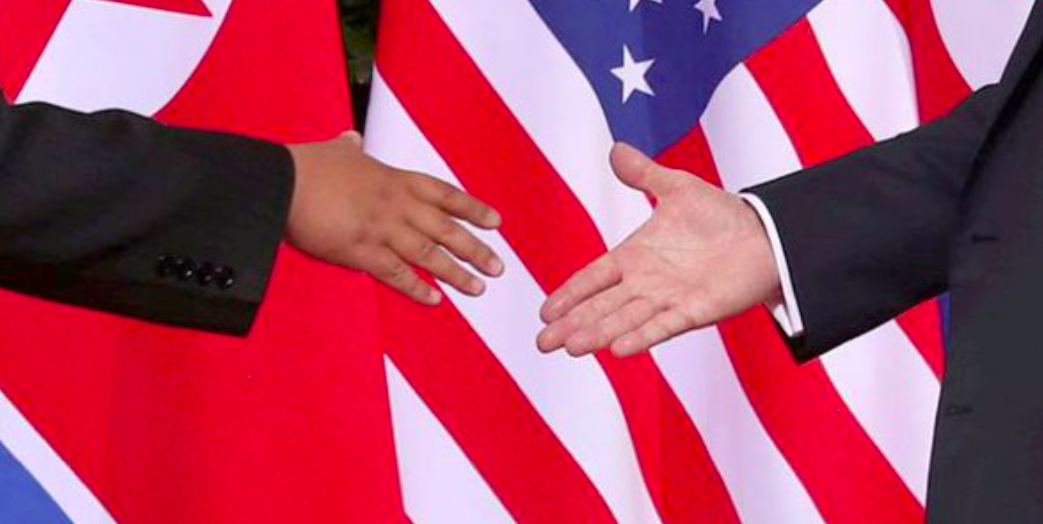
Next week President of the United States Donald Trump will meet with supreme leader of North Korea Kim Jong Un in Hanoi, Vietnam, to undertake the second summit between the two leaders since their historic meeting at Singapore last year.
Both parties will enter this summit with very different expectations and political goals, but will aiming to produce a mutually beneficial agreement which may pave an opening to conclude 70 years of hostilities which have entrenched life on the Korean Peninsula. But what can we realistically expect such a summit to achieve?
Critics of it may be right in noting that the meeting will not bring about what America terms the “final and fully verified denuclearisation of the Korean peninsula” – this is not feasible. Indeed, such is not a realistic outcome from this summit. But should it be written off as some sceptics have demanded? Absolutely not, rather than being an unavoidable failure, or as some like to say “appeasement” the Hanoi summit is a golden opportunity to transform and stabilize relations between North Korea and the U.S in a way that has never been achieved before, opening a pathway to peace, security and non-belligerence in North East Asia. It should be about making demands or speculating who has what, rather it is the norm and structure of the relationship between the two countries that counts here.
The United States and North Korea have never had any formal diplomatic relations. With the Korean war being frozen in an armistice without a formal resolution, their relationship has been long trapped in a cycle of crisis diplomacy, hostility and military centric considerations.
Although there is no actual fighting, the considerations of war have been frozen in their mindsets in how they relate to one another. In this frozen scenario, the DPRK has long perceived America as a threat to its regime and also an obstacle to its political objectives in reunifying the peninsula whilst maintaining the entirety of its political order. With this vacuum of any stable diplomatic relationship, Pyongyang’s sense of vulnerability saw it pursue a nuclear weapons program in order to balance against Washington and force it to negotiate on equal and considerate terms, by which it would otherwise not be given. The nuclear crisis thus should not viewed in tabloid terms as the simple work of a “mad man” which so often characterises depictions of North Korea, but through the lasting continuation of highly adversarial, crisis relations.
Now, through a second summit with Kim and Trump, a historical window is opened whereby that can change. Indeed, few can ignore America’s demand of denuclearisation, as well as the insistence that sanctions on North Korea should remain until Pyongyang has “fully denuclearized”, going up against Kim’s insistence on keeping as much capability as possible and his demand for sanctions relief.
However, if the Hanoi summit is to be a true success, then it should not be boxed into such simplistic terms, but given scope and patience for what it may achieve in the long run. It is true to highlight that North Korea will not fully denuclearize. The idea that the DPRK can hand over their entire diplomatic leverage for the short-term vision of sanctions relief would be staggering naivety. It won’t happen. But that does not mean there is nothing good can come of it.
Critics will complain, but a summit whereby both sides make meaningful realistic concessions and set out a paradigm for a new form of relationship between America and North Korea is not only the most realistic outcome, but also the most desirable.
Hawkish voices demand America pushes for a one-sided capitulation, but they fail to give justice to the political and structural problems which have created a nuclear North Korea in the first place, by criticizing the Hanoi summit and opting for a continuation of the status quo, they offer no solution to that problem. Yet, a mutual and realistic outcome in this summit may reset interaction between the two countries in a way which removes the structural impediments for further proliferation and belligerence.
North Korea and America will never realistically be allies given the obvious political differences, but a foundation for new relations can remove the aspect of war and risk between the two.
In no circumstances must we write off this Hanoi summit. Don’t staple it in the question of denuclearisation or not, but aim to examine it in the broader picture of how a mutually beneficial agreement, with both sides giving, a and pledge to refresh relations, may yet pose historic change to the Korean environment as we have ever known it.
Tom Fowdy is a postgraduate student of Chinese studies at Oxford University. In 2015 he founded Visit North Korea, which promotes travel, cultural exchanges and human engagement with the country.
Follow our Facebook page for daily updates
…

Comments are closed.